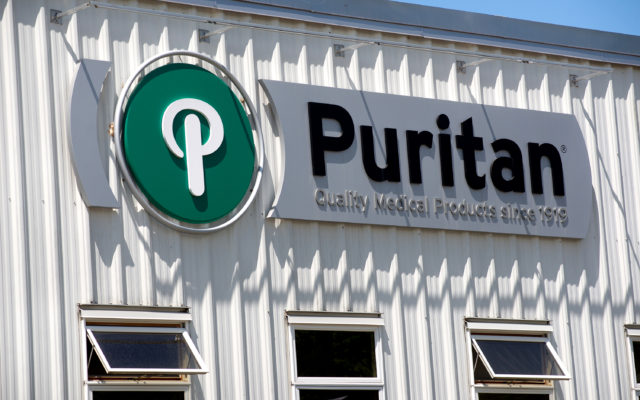
This Health Literacy Month, there is actually progress to celebrate
By Virginia Templet, Puritan Medical Products marketing director
October is known as Health Literacy Month, which promotes Americans finding, understanding and using health information to their advantage. And while many people are struggling to access quality healthcare and there are constant conversations about our “broken” system, there is also plenty of progress to celebrate.
It is not all doom and gloom, and the numbers don’t lie. According to 2025 data, 92% of Americans are actively preparing for their future in terms of health and wellness.
Despite negative headlines, most Americans are motivated to proactively prioritize their healthcare. Indeed, more than 70% of Americans rate their health and wellness as good or excellent. Most people are getting enough sleep, avoiding work-related stress and exercising at least somewhat regularly. And, just as importantly, most Americans know that these priorities are integral to a healthy lifestyle. This understanding is aligned with their public policy concerns, as seven in 10 Americans favor increased investment in disease prevention, not just treatment.
Wherever we may stand politically, the “Make America Healthy Again” movement has shown that people care more about addressing chronic disease by avoiding it altogether, reassessing what they consume on a daily basis and how it may affect their livelihood. Food additives and chemicals are under the microscope in unprecedented ways, with Walmart pledging to remove dyes and other additives from its U.S. house-brand products by 2027.
What remains important is continuing to raise public awareness about common health issues. From adults and adolescents, there are millions of Americans who lack basic know-how when it comes to accessing and utilizing valuable information through no fault of their own, although the number has dropped in recent years. Given that health literacy is a stronger predictor of health status than income or employment status, any lack of knowledge or experience will have far-reaching consequences over the course of years and decades.
Let’s be clear: Health literacy is a key determinant of health. One area where Americans (myself included) can improve is greater focus on screening, testing, and other forms of preemptive care. Over 90% of Americans believe it is important to receive an annual physical, and yet barely 60% end up getting one. Although the COVID-19 pandemic heightened our collective focus on routine doctor’s visits, nine in 10 Americans have put off important health check-ups and screenings at some point. Millennials and Gen Zers are especially likely to avoid such screenings, revealing a potential pain point within young America.
Then there are regular tests for COVID-19, influenza, and other common viruses. About one quarter of Americans don’t get tested for the coronavirus even if they report core symptoms. Similarly, the overwhelming majority of sexually active males and females don’t get tested for sexually transmitted infections. According to some estimates, fewer than 12% of young people admit being tested in the past year.
Working at a leading North American test swab manufacturer, it is all too clear that there is a gap between the need for testing and people actually getting it done. However, where we have hope is increased access to information, specifically as it pertains to the benefits of preemption in identifying current or future health issues.
It is not just people in our industry advocating for proactive approaches to health and wellness, and consumers have more tools with which to apply personal responsibility to their daily lives. The access to and usage of digital personal health information has more than doubled over the last decade. Just look at online access to medical records: In 2014, only about one fourth of Americans were offered online access to their medical records. By 2024, that figure had climbed to more than three quarters of individuals nationwide. And most people use these online resources, which often comes with educational materials.
Whether it means consulting a doctor through a virtual appointment or tracking a health influencer’s tips on diet and exercise, it is difficult to remain in the dark these days. Advice related to health and wellness is everywhere, if you care to look for it. Of course, bad advice comes with the territory, but good advice is a dime a dozen too.
This Health Literacy Month the keys to America’s health and wellness are the same as ever, awareness and education, and we all have a role to play. This leads to the proactive, preemptive healthcare that ultimately saves millions of lives.